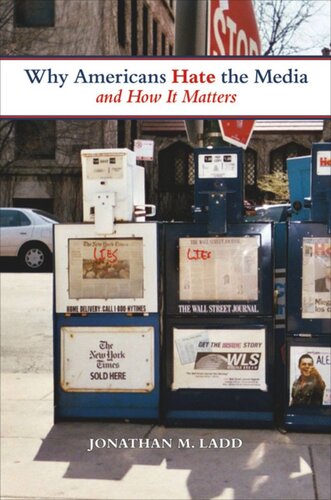

Most ebook files are in PDF format, so you can easily read them using various software such as Foxit Reader or directly on the Google Chrome browser.
Some ebook files are released by publishers in other formats such as .awz, .mobi, .epub, .fb2, etc. You may need to install specific software to read these formats on mobile/PC, such as Calibre.
Please read the tutorial at this link: https://ebookbell.com/faq
We offer FREE conversion to the popular formats you request; however, this may take some time. Therefore, right after payment, please email us, and we will try to provide the service as quickly as possible.
For some exceptional file formats or broken links (if any), please refrain from opening any disputes. Instead, email us first, and we will try to assist within a maximum of 6 hours.
EbookBell Team

4.7
26 reviewsAs recently as the early 1970s, the news media was one of the most respected institutions in the United States. Yet by the 1990s, this trust had all but evaporated. Why has confidence in the press declined so dramatically over the past 40 years? And has this change shaped the public's political behavior? This book examines waning public trust in the institutional news media within the context of the American political system and looks at how this lack of confidence has altered the ways people acquire political information and form electoral preferences.
Jonathan Ladd argues that in the 1950s, '60s, and early '70s, competition in American party politics and the media industry reached historic lows. When competition later intensified in both of these realms, the public's distrust of the institutional media grew, leading the public to resist the mainstream press's information about policy outcomes and turn toward alternative partisan media outlets. As a result, public beliefs and voting behavior are now increasingly shaped by partisan predispositions. Ladd contends that it is not realistic or desirable to suppress party and media competition to the levels of the mid-twentieth century; rather, in the contemporary media environment, new ways to augment the public's knowledgeability and responsiveness must be explored.
Drawing on historical evidence, experiments, and public opinion surveys, this book shows that in a world of endless news sources, citizens' trust in institutional media is more important than ever before.